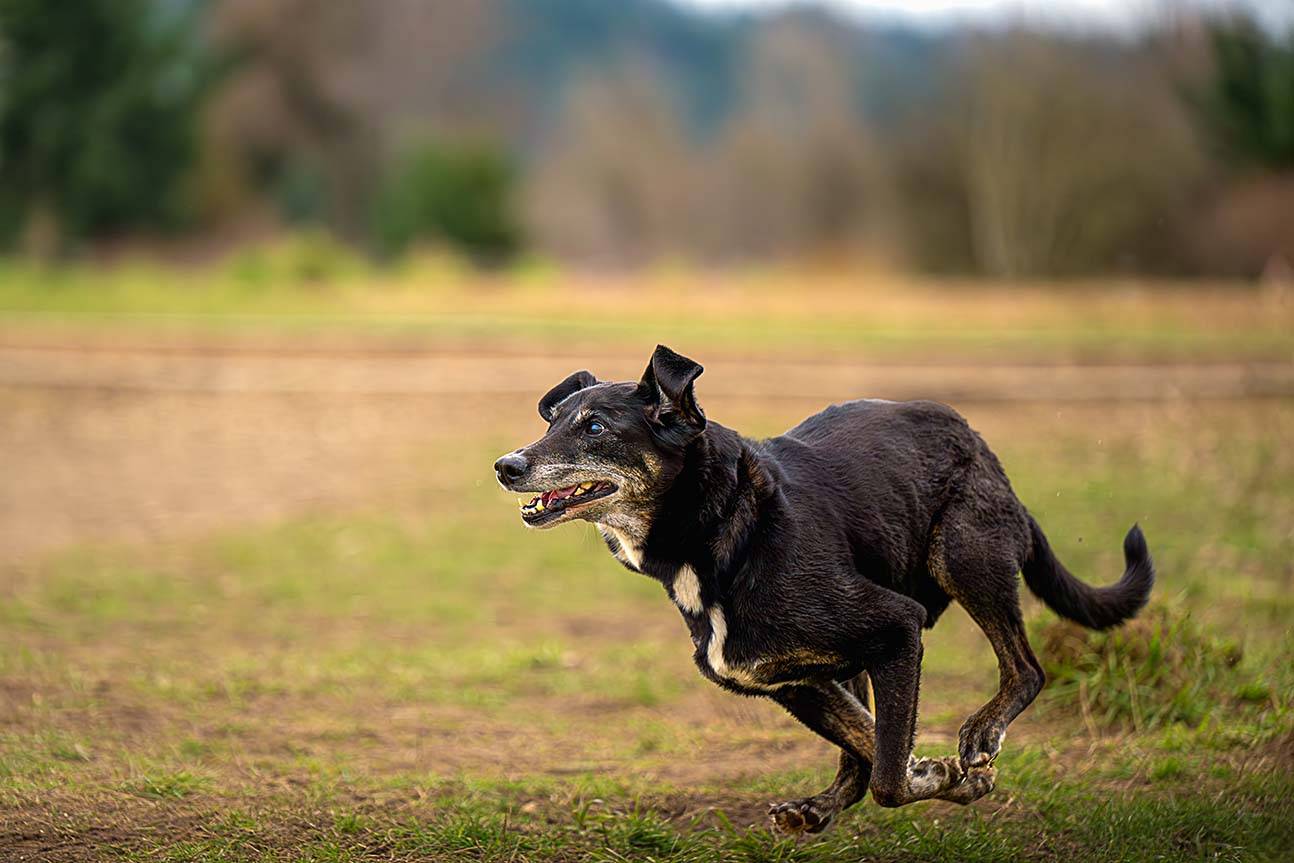Reviewed by Dr. Sarah Yosry
Updated on 23/05/2025
Reading time 4 min.
Overview
Severity: Low
Life stage: All
As dogs get older, their cognitive ability, much like in humans, will start to deteriorate. Cognitive dysfunction, commonly known as Cognitive Dysfunction Syndrome (CDS) in dogs, has a range of ways it can also impact a dog’s behavior, memory, and quality of life. Knowing how to recognize the signs, causes, and treatment is important to making a better life for your aging dog.
Here, we will discuss the signs and symptoms, risk factors, and available therapies of cognitive dysfunction, providing beneficial tips on how to deal with the condition. We will also add a call to action to Modern Vet Hospital Dubai, as professional services are available there.
What is Cognitive Dysfunction Syndrome (CDS)?
Cognitive Dysfunction Syndrome (CDS) is a condition associated with aging that is found in the brains of senior dogs. It is comparable to Alzheimer’s disease or dementia in elderly humans when the elderly brain demonstrates mental decline. CDS has been found to cause reductions in the mental capacities of dogs and impact their behavior patterns, recollection, and comprehension of the world around them.
CDS usually comes on in dogs when they are around the age of 7 and above, but the severity and timing depend on breed and general health. The aging of the brain causes a decrease in neurotransmitter levels, degeneration of the brain cells, and buildup of aberrant proteins. These alterations bring about cognitive decline.
The precise cause of CDS is unknown but is thought to involve a mixture of causes, including oxidative stress (free radical damage), reduced blood circulation to the brain, and abnormal protein buildup in the cells of the brain. While it cannot be completely prevented or reversed, early identification and intervention can alleviate symptoms and reduce its course.
Signs and Symptoms of CDS
The signs of cognitive dysfunction start slowly and may resemble usual aging changes. Usually, it is when the changes interfere with your dog’s usual behavior or with his or her quality of life. Watch out for the following signs:
Confusion and Disorientation:
One of the signature symptoms of CDS is confusion, and it occurs in places that are the most familiar to the dog. Your pet will pace around in circles, get trapped in corners, or look confused when they cannot locate water or food. They might also lose their accustomed pathways, like how to go out or where to sleep.
Sleep Pattern Changes:
Dogs with cognitive dysfunction have disturbed sleep patterns. This may involve excessive napping during the day, restless or agitated nighttime behavior, and confusion upon waking. They might start their nocturnal pacing and/or vocalization, disrupting both their sleep and yours.
Less Interaction with People and Animals:
CDS dogs will distance themselves from family and other animals and become less interested in social interactions with known individuals. They will lose interest in following you around the home or even playing and doing things they had previously enjoyed. Lack of interest in toys, walks, and petting may also indicate cognitive decline.
Housebreaking Problems:
One of the most evident signs of CDS is a decrease in housebreaking ability. A previously house-trained dog might begin to have in-house accidents and forget to eliminate in the proper places. This is usually a result of cognitive dysfunction compromising their ability to recall when and where to eliminate.
Amplified Anxiety or Frightened Temperament:
Senior dogs with CDS often have increased anxiety or fearfulness, such as when left alone. They become overly attached and might demonstrate separation anxiety or excessive whining when the owner leaves the room. Dogs with CDS also startle more readily to loud stimuli or sudden occurrences.
Aggression or Irritability:
Aggression or irritability are some of the characteristics some dogs with CDS might show, even towards close family personnel or pets. The fact that a dog has been acting grumpy, snappish, or has reacted aggressively to stimuli to which they wouldn’t have reacted previously might indicate cognitive dysfunction.
Slowness of cognition and lack of interest:
CDS dogs might have slower responses to stimuli or commands. They may respond more slowly to being called out to them or appear indifferent to obedience when they used to respond immediately to it.
The symptoms are often subtle and may not all manifest at the same time. Close attention to any changes in the behaviour of the senior dog becomes a necessity. One also has to eliminate other medical issues which may produce the same sort of symptoms, i.e., vision or hearing loss, arthritis, or pain.
Causes and Risk Factors for CDS
The main cause of CDS is the normal aging process of the canine’s brain, but a variety of factors are responsible for the development of the condition. Some of the most prevalent causes and risk factors for cognitive dysfunction are outlined as follows:
Brain Aging:
The aging process in dogs causes changes to the brain to result in a decline in cognitive ability. The levels of neurotransmitters like dopamine and serotonin are lowered with age, causing a degradation of memory, learning ability, and spatial perception. The ability of the brain to deal with complicated tasks also declines because of a reduction in neurons and synapses.
Oxidative Stress:
Oxidative stress due to the oxidation of brain cells by free radicals plays a considerable role when it comes to aging and loss of cognitive ability. The brain is especially prone to oxidation damage as it has a high rate of metabolism and requires a lot of oxygen. Free radicals cause oxidative damage in the long term, leading to brain aging.
Vascular Changes:
The blood circulation to the brain in dogs reduces as they grow older and causes a decrease in the oxygen and nutrients to cells in the brain. Inadequate circulation contributes to cognitive impairments and makes it difficult for the brain to perform optimally.
Abnormal protein buildup:
In CDS in dogs, abnormal proteins like amyloid plaques and tau protein build up in the brain. The protein deposits interfere with communication among brain cells and with cognitive functions, like the way amyloid plaques are associated with Alzheimer’s in humans.
Although the main risk factor is aging, other risk factors might predispose a dog to CDS:
● Breed: Some breeds are more susceptible to cognitive dysfunction. Larger breeds like Doberman Pinschers, Boxers, and German Shepherds are more likely to suffer early-onset age-related cognitive decline compared to small breeds.
● Genetic Predisposition: Genetics also has a part to play in the likelihood of a dog developing CDS. Some breeds or certain dogs are predisposed to aging of the brain and cognitive dysfunction and may thus be more severely affected than others.
● Pre-existing Medical Conditions: Other medical issues affecting dogs, including kidney illness, cardiovascular illness, or metabolic diseases, might predispose a dog to developing CDS. These diseases hasten aging and cognitive decline of the brain.
Diagnosing Cognitive Dysfunction in Dogs
The diagnosis of CDS in dogs is difficult to make as it has no test to confirm it. Your veterinarian will begin by making a careful physical examination and conducting additional testing to eliminate the possibility of other causes for a change in behavior in your dog. The diagnosis process could involve:
• Physical and Neurological Examinations: These examinations serve to evaluate your dog’s general condition and ascertain if the symptoms are a result of some underlying physical condition, like pain or neurological ailments.
• Urinalysis and Blood Tests: These are used to identify metabolic imbalances, infection, or illness causing cognitive dysfunction. Thyroid issues in dogs are a case in point and have been known to cause cognitive dysfunction symptoms.
• Behavioral Evaluation: Your veterinarian will question you in-depth about any changes you have noticed in your dog’s behavior, when they began, how they have developed, and the particular signs you’ve noticed. The questionnaire or cognitive dysfunction checklist might include the following:
• Imaging (MRI or CT scans): In some exceptional cases, your vet might order skull imaging procedures such as MRI or CT scans to check for structural alterations in your dog’s brain that may impair their mental functions. In general, however, it is usually not required to diagnose CDS.
In most situations, CDS diagnosis is established on clinical presentation and exclusion of other diseases that may cause cognitive dysfunction.
Treatment Options for Cognitive Dysfunction in Dogs
Although there is currently no cure for Cognitive Dysfunction Syndrome, several treatments exist to deal with the condition and enhance your dog’s quality of life.
Medications
There are several medications your veterinarian might prescribe to help improve your dog’s cognitive function:
• Selegiline (Anipryl): Selegiline is used most often to treat canine CDS. Selegiline increases the amount of dopamine in the brain and has been found to enhance learning, memory, and behavior.
• Antioxidants: There are supplements such as vitamin E, vitamin C, and coenzyme Q10 that can protect the brain cells from oxidative damage. Antioxidants reduce inflammation and promote healthy brains.
• Dietary Supplements: Omega-3 fatty acid supplements (like fish oil) and phosphatidylserine (a fat used to maintain healthy brains) are commonly suggested to enhance mental functioning in older dogs.
Specialized diets
Diet also has a role to play in aiding the brain health of your dog. Senior foods specially formulated to support cognition contain nutrients to aid in the functioning of the brain, including:
Omega-3 Fatty Acids: Present in fish oils, omega-3 fatty acids are responsible for healthy brain cells and enhanced cognitive function.
Antioxidants: They assist in protecting the brain against oxidative damage, a process by which cognitive decline accelerates.
Environmental Enrichment and Routine
Dogs suffering from CDS are helped by mental and physical stimulation. Some methods of mental stimulation to engage a dog’s mind are:
Interactive toys: Puzzle toys or treat-dispensing toys are a good way to give mental stimulation to keep your dog’s mind active.
Daily Schedule: Having a daily routine of meals, walking, and sleep can give your dog a sense of stability and minimize confusion. Familiarity with their surroundings also reduces anxiety.
Comfort and Care
Your pet can have disorientation or confusion as a result of cognitive dysfunction. Their comfort and safety are a necessity:
Provide a Quiet Atmosphere: Reduce noise and disturbance levels, if possible, if the dog is prone to startle.
Use nightlights: Install nightlights in your residence if your pet has poor eyesight at night to help it avoid bumping around in the dark.
Modify furniture: Use rugs or mats to minimize the chances of slipping in case your dog has mobility issues.
When to Consult a Veterinarian?
If you observe any indication of cognitive dysfunction in your dog, it is essential to arrange a veterinarian appointment. Treatment will help enhance the quality of life of your dog and control the symptoms early on.
Your veterinarian will prescribe the proper course of treatment depending on the extent of the condition. For customized care, opt to contact Modern Vet Hospital Dubai to receive professional guidance and personalized care best suited to the particular requirements of your canine friend.
Conclusion
Comprehending cognitive dysfunction and identifying signs will make it easier for your dog to maintain a more comfortable life as they age. If you suspect that your dog exhibits signs of CDS, seek the help of a veterinarian. Schedule an appointment today at https://bookme.modernvet.com/ and receive expert care.
Share this, choose your platform!
Writen by
Dr.Sarah Yosry
DVM
A product of a rich Australian/Egyptian heritage, Dr. Sarah Yosry stands as a testament to the union of diverse cultures and a shared love for animals.



